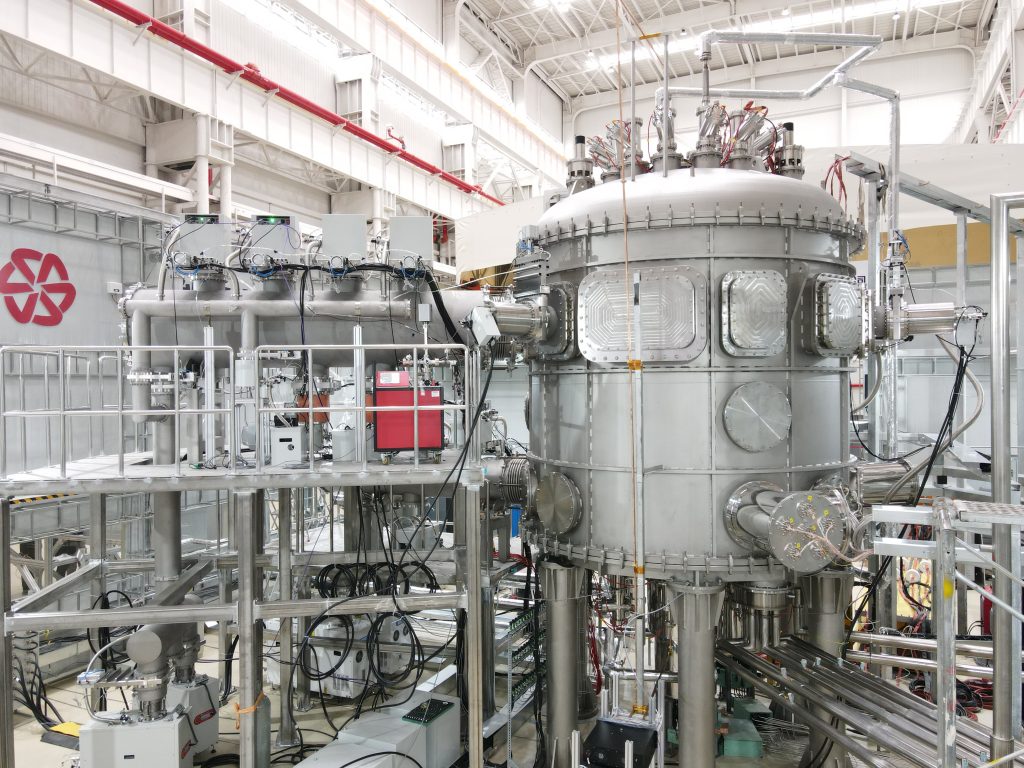The Chinese Startup Leading The Nuclear Fusion Race

In the world of clean energy, one Chinese startup is making headlines with its bold approach to solving one of humanity's greatest challenges: producing limitless, clean energy through nuclear fusion. Energy Singularity, based in Shanghai, is determined to harness this power by developing nuclear fusion reactors. Since its founding in 2021, the company has achieved impressive milestones that have drawn the attention of the global energy sector.
What is Energy Singularity?
Energy Singularity is a new player in the nuclear fusion industry, but its ambitions are immense. Founded just three years ago, in 2021, the company is focused on designing and building a nuclear fusion reactor that can generate clean, sustainable energy. The goal of nuclear fusion is to replicate the process that powers the sun, creating energy by fusing atoms rather than splitting them, as is done in nuclear fission.
The technology behind Energy Singularity’s vision revolves around a type of reactor called a "tokamak." A tokamak uses powerful magnetic fields to contain and control plasma, the hot, charged state of matter where fusion reactions can occur. In particular, Energy Singularity’s tokamak designs use high-temperature superconducting (HTS) magnets, which allow the reactor to handle the intense heat and pressure required to maintain the fusion process. Their first prototype reactor, called the HH70 (Honghuang 70), has been a critical part of their recent breakthroughs.
Major Milestones
In June 2024, Energy Singularity announced two significant developments in its fusion journey. The first achievement was creating "first plasma" with the HH70 reactor. In nuclear fusion terms, this means they were able to produce and contain a superheated plasma inside the reactor. Plasma is essential to fusion because it's the state of matter where the fusion of atomic nuclei can occur, releasing energy in the process.
But perhaps even more exciting was their second claim: that the HH70 achieved a net positive energy output. In simpler terms, this means that the reactor produced more energy from the fusion reaction than was needed to initiate it. If confirmed by independent sources, this would represent a huge step forward, as one of the biggest challenges in fusion energy is creating more power than is consumed in the reaction.
Future Plans and Challenges
With this success under its belt, Energy Singularity is now looking toward the future. The company has already raised around $110 million to fund its research and development, but it plans to raise an additional $500 million to bring its next reactor, the HH170, to life. Scheduled for completion by 2027, the HH170 will be larger and more powerful than the HH70, potentially bringing fusion energy closer to commercial viability.
However, the journey to successful nuclear fusion is far from easy. Energy Singularity is part of a global race, with other companies around the world, especially in the United States, also working to crack the fusion code. Despite the competition, the Chinese startup believes it has some key advantages. Most notably, around 95% of the components used in the HH70 reactor were sourced from within China, demonstrating the country’s robust supply chains for fusion-related materials. This domestic sourcing capability could provide a significant edge over competitors who are reliant on international supply chains.
Global Impact
If Energy Singularity can continue to make progress, its achievements could place China at the forefront of the nuclear fusion revolution. Fusion energy is often referred to as the "holy grail" of energy technologies because it offers the possibility of nearly limitless power with minimal environmental impact. Unlike current nuclear power stations, which rely on fission and produce long-lived radioactive waste, fusion reactors would generate minimal waste and produce no greenhouse gases.
Energy Singularity’s progress also reflects China’s growing ambition in the clean energy sector. The country has already established itself as a leader in solar and wind power, and it now aims to be a major player in the next generation of energy technology. By investing heavily in nuclear fusion, China is positioning itself to lead the world in sustainable energy solutions.
Energy Singularity is still in the early stages of its journey, but its achievements with the HH70 reactor represent a significant leap forward for the company and for the global fusion industry. As it continues to develop new reactors and raise funds for future projects, the startup could play a key role in shaping the future of clean energy. With the world increasingly looking for alternatives to fossil fuels, the success of companies like Energy Singularity could bring humanity closer to a future powered by nuclear fusion—one of the most promising solutions for a sustainable planet.
World Liberty Seeks Federal Trust Charter
World Liberty Financial, the crypto venture backed by the Trump family, has applied for a US national bank trust charter... Read more
Saudi Banks Tap Overseas Markets
Saudi Arabia’s banks are borrowing from international markets at their fastest pace on record, as lenders try to squar... Read more
Amazon Continues To Cut 16000 Gone
Amazon has announced plans to cut a further 16,000 roles from its corporate workforce, extending the cost and organisati... Read more
The UK May Have A Voice In Ai
Europe’s AI sector has grown accustomed to playing catch-up. Capital has flowed more slowly than in Silicon Valley, va... Read more
Musk Applies Pressure To BT
Britain’s broadband market has spent the past decade locked in a familiar pattern. Incumbents invested heavily in fibr... Read more
Blackrock Sees EMEA Moving Into Private Assets
BlackRock has warned that investors across Europe, the Middle East and Africa are reshaping portfolios in response to wh... Read more

